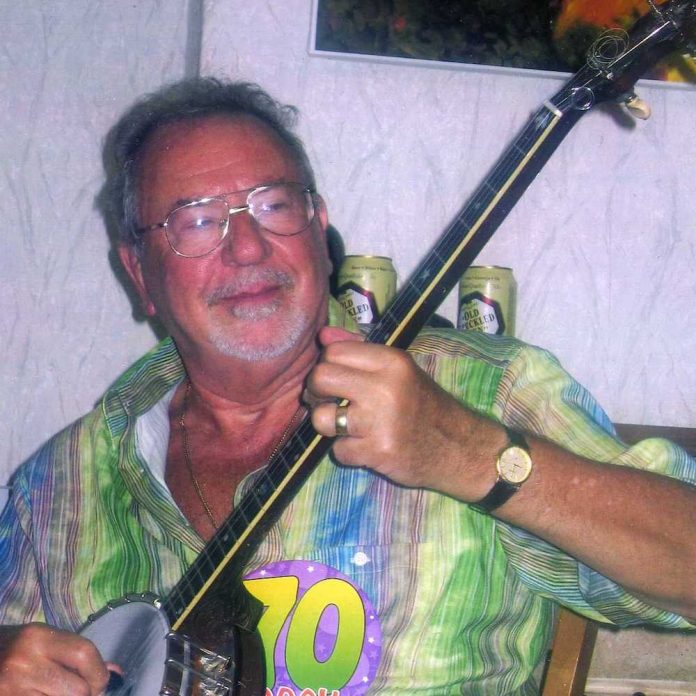
99 POSTS
When Bunny Berigan famously claimed "I Can't Get Started" in 1936, Hugh Rainey did the exact opposite, being born in in Plaistow, east London, 6th July of that year. He attended Plaistow Grammar School from 1947-1954, sixth-form studies struggling to compete with the Goon Show and newly discovered traditional jazz, Cicero and Chaucer often retreating behind Spike Milligan and Chris Barber. He went to Queen Mary College, London University 1954-57, emerging with a BA (Hons) in English Lit.
He took up the banjo in 1955, later leading the college jazz band and played his first semi-professional job with Steve Lane's classic-style band, leaving him in 1956 to form the purist-based Storyville Jazzmen, together with pianist Pete Gresham and school friend John Mortimer. In 1957, now with Bob Wallis in the line-up, he made several recordings for Doug Dobell's 77 label. George Lewis sat in once, at Ken Colyer's Studio 51 Club. In summer 1957, when the band broke up, Hugh joined Terry Lightfoot for his first professional job, earning £15 a week, before national service, 1957-1959. Meantime he had recorded one last time for 77 with the Hugh Rainey All Stars in a line-up including Acker Bilk and Ginger Baker.
On release from national service in September 1959, Hugh turned professional in a re-formed Storyville Jazzmen, under the inspiring and enthusiastic leadership of Bob Wallis. From 1959-63, the band rode high on the crest of the trad boom, with constant tours, major club, concert and festival appearances, albums and singles for Top Rank and Pye, radio and TV shows, and a couple of films (It's Trad Dad and Two Left Feet, starring Michael Crawford). Around this time Hugh was named top banjo player in the banjo/guitar section of the Melody Maker's readers' poll.
In 1963 the Beatles burst on the scene and by 1964 jazz gigs had greatly thinned out. Professional status was no longer an option for Hugh and he became a full-time teacher at Wickford Junior School in the April of that year. In 1965-66 he returned to jazz as a professional with Monty Sunshine before returning to full-time teaching and playing as a semi-pro with Cy Laurie (from 1968) and others. In 1970 he took up trumpet in addition to banjo, and has since led his own band on either instrument, mainly in Essex venues but also on cruises and in Australia and Vancouver.
In 1980, Hugh began writing record reviews for Jazz Journal, recruited by the then editor, Eddie Cook when he was sitting in with Hugh's band at the Red Lion, Margaretting. In 1991 Hugh retired early from teaching, remaining active on both trumpet and banjo. In 2013 he was interviewed for the BBC's Jazz Britannia programme. He also assists Digby Fairweather with the National Jazz Archive project in Southend.